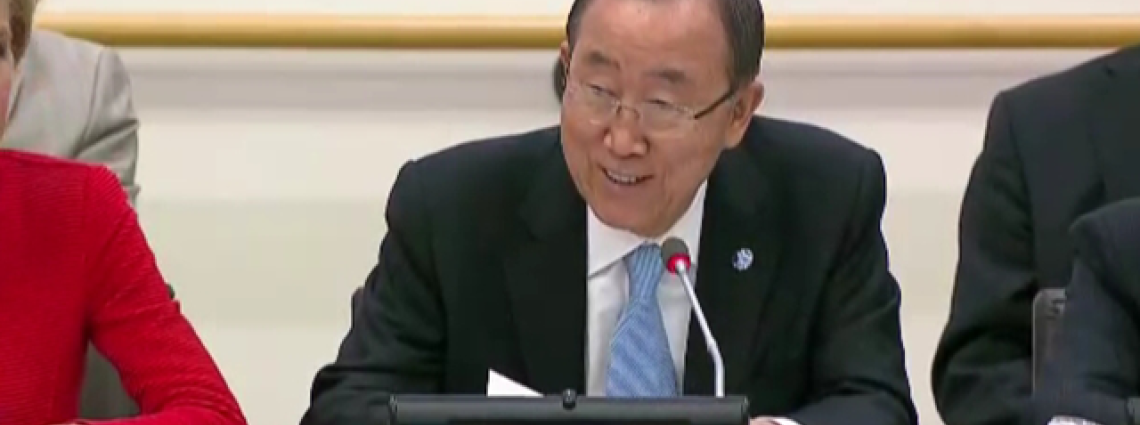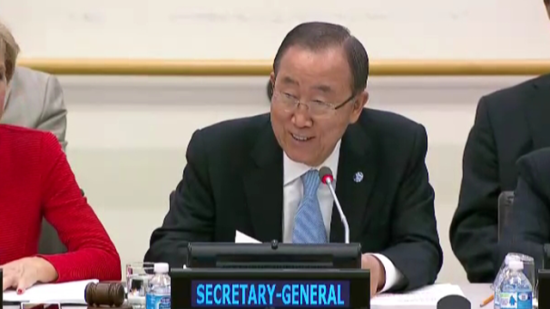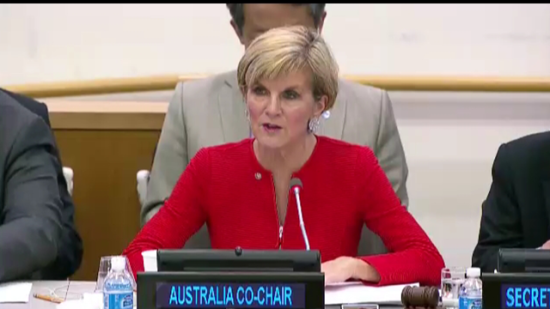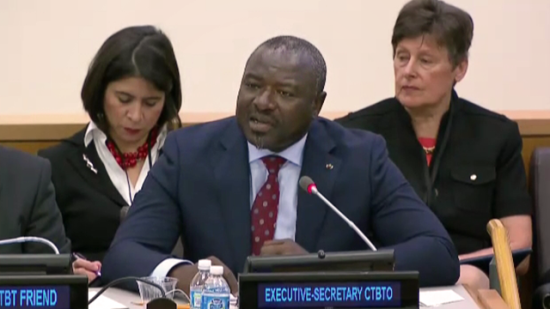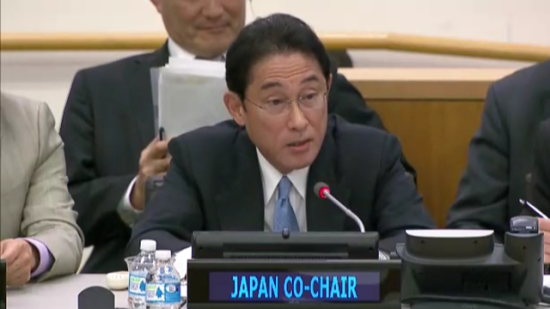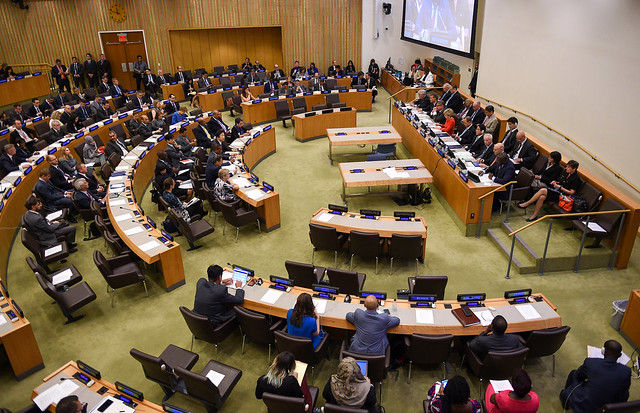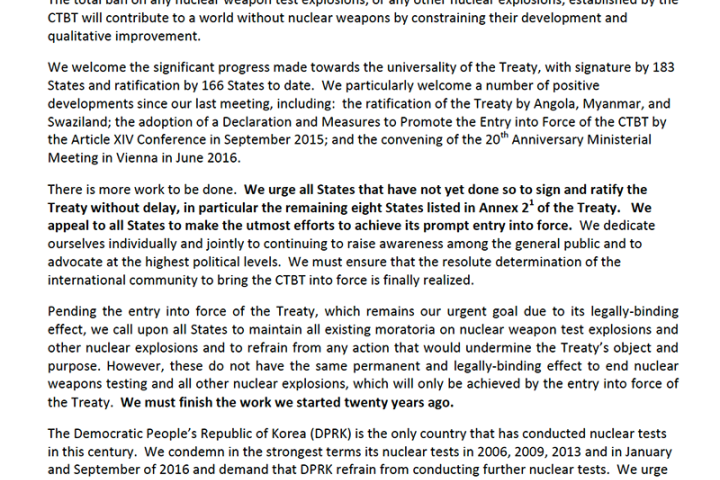2016: Eighth Ministerial Meeting of the Friends of the CTBT
Three days before the 20th anniversary of the Comprehensive Nuclear-Test-Ban Treaty’s (CTBT) opening for signature, foreign ministers and high-level representatives of Member States convened in New York on 21 September 2016 to issue a joint call for the Treaty’s prompt entry into force.
The eighth Ministerial Meeting was chaired by the Foreign Ministers of the “Friends of the CTBT” – Australia, Canada, Finland, Germany, Article XIV co-chair Japan, and the Netherlands – in cooperation with Article XIV co-chair Kazakhstan and the United Nations. In his remarks, United Nations Secretary-General Ban Ki-moon told participants: “The Treaty’s failure to enter into force was unacceptable when I entered office in 2007. It is beyond unacceptable now.”
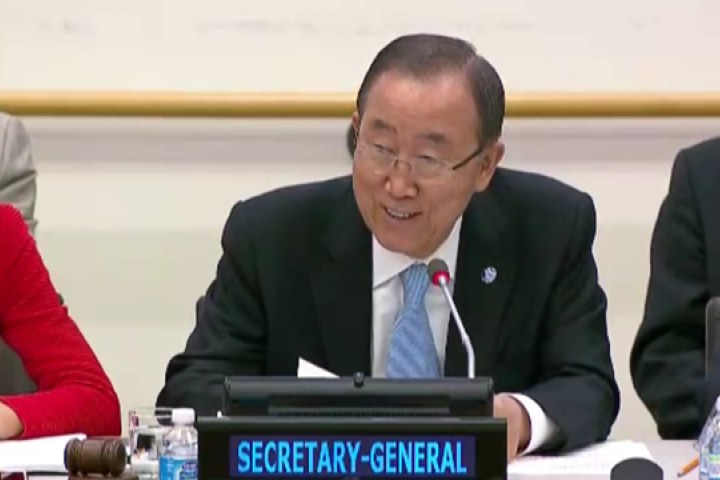
UN Secretary-General Ban Ki-moon
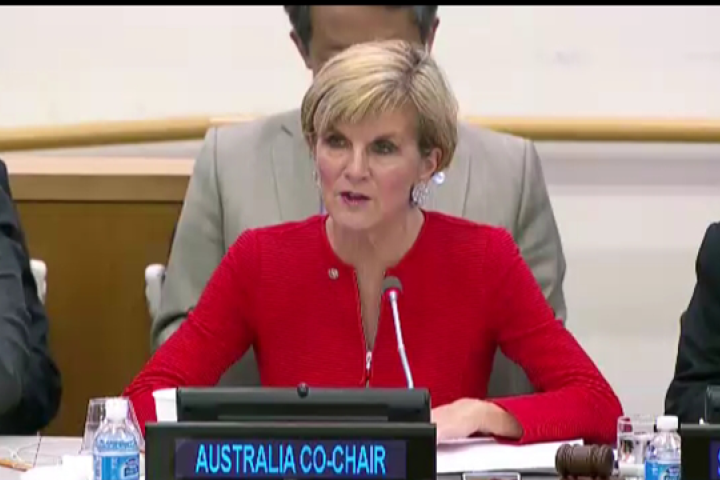
Minister of Foreign Affairs of Australia, Julie Bishop
Despite the challenges, I do see progress – and many reasons for optimism. Together, let us strengthen our resolve. As States Signatories, you are the stakeholders and owners of the process that will lead us to entry into force. Let’s not wait another twenty years. It is time to lock in the benefits of this Treaty and secure a nuclear test-free world once and for all.
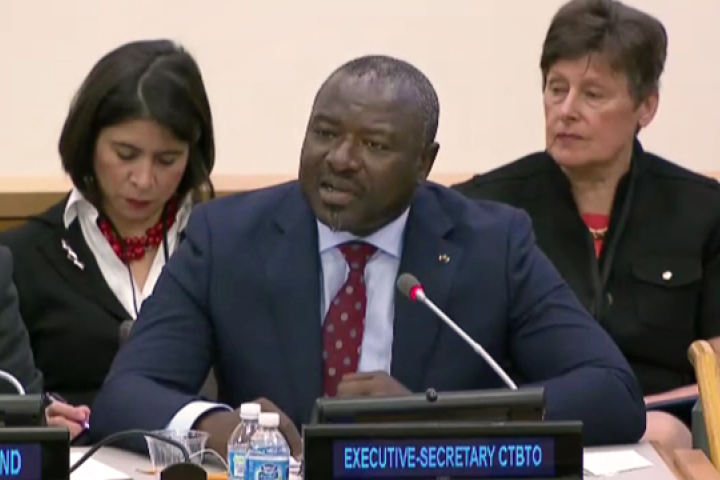
CTBTO Executive Secretary Lassina Zerbo
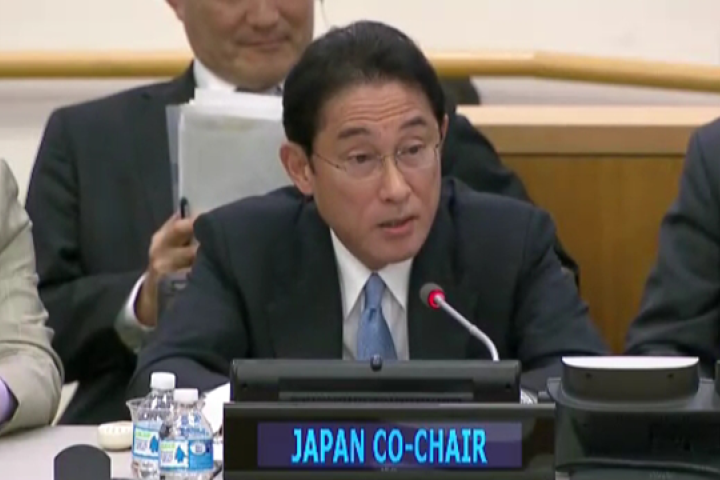
Minister for Foreign Affairs of Japan, Fumio Kishida
We have to guard against complacency. If each new nuclear test announced by the DPRK is met with a mere shrug of the shoulders, this sends a dangerous signal. It is my hope – and, I think, our shared aspiration – that the international community will make clear its resolve that the global norm against nuclear testing must be entrenched and followed by all nations.
The interventions made at the Meeting echo the statement recently issued jointly by the five permanent members of the UN Security Council: China, France, the Russian Federation, the United Kingdom, and the United States, recognising the CTBT as an instrument that “constrains the development and qualitative improvement of nuclear weapons and thereby provides an effective disarmament and non-proliferation measure.” The so-called P5 nations pledged “to strive for the Treaty’s early ratification and prompt entry into force and urge[d] all states that have not done so to sign and ratify the Treaty.”
Gallery of images
CTBT Ministerial Meeting - Wednesday, 21 Sept. 2016
| State/Chair | Speaker | |
|---|---|---|
| 1 | Opening Statements | |
| Australia, Co-Chair | H.E. Ms Julie Bishop, Minister for Foreign Affairs |
|
| Secretary General of the United Nations [WEB] |
H.E. Mr Ban Ki-moon | |
| Executive Secretary of the CTBTO [PDF] |
Dr Lassina Zerbo | |
| 2 | Universalisation of the Treaty | |
| Finland | H.E. Mr Timo Soini, Minister for Foreign Affairs |
|
| Kingdom of Thailand [PDF] |
H.E. Mr Don Pramudwinai, Minister for Foreign Affairs |
|
| Kingdom of Swaziland | H.E. Chief Mgwagwa Gamedze, Minister for Foreign Affairs and International Cooperation |
|
| Republic of the Union of Myanmar | H.E. U Kyaw Tin, Minister of State for Foreign Affairs |
|
| 3 | Entry into Force of the Treaty | |
| The Netherlands | H.E. Mr Bert Koenders, Minister for Foreign Affairs |
|
| Kazakhstan |
H.E. Mr Erlan A. Idrissov, Minister of Foreign Affairs |
|
| United States |
H.E. Ms Rose Gottemoeller, Under Secretary of State for Arms Control and International Security |
|
| 4 | Role of the verification regime: detecting DPRK test and progress toward its completion | |
| European Union [WEB] |
H.E. Ms Federica Mogherini, High Representative of the European Union |
|
| Republic of Korea |
H.E. Mr Byung-se Yun, Minister of Foreign Affairs |
|
| 5 | Initiative to strengthen the verification regime | |
| Germany | H.E. Mr Frank-Walter Steinmeier, Minister for Foreign Affairs |
|
| Indonesia | H.E. Ms Retno Marsudi, Minister of Foreign Affairs |
|
| Argentina | H.E. Mr Gustavo Zlauvinen, Under-Secretary for External Relations |
|
| 6 | Further action on the global norm against testing | |
| Canada |
H.E. Mr Stéphane Dion, Minister of Foreign Affairs |
|
| 7 | Adoption of the Joint Statement and closing statement | |
| Japan, Co-Chair [PDF] |
H.E. Mr Fumio Kishida, Minister for Foreign Affairs |
